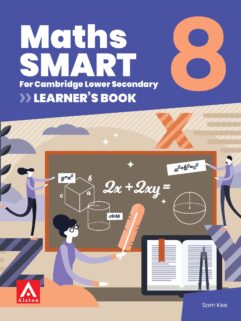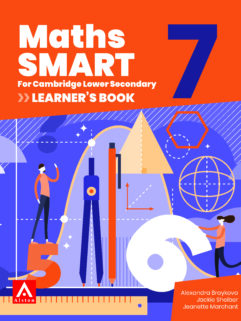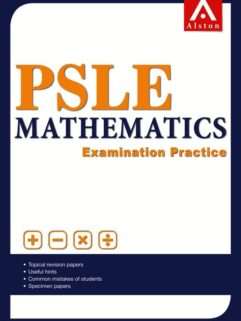Rp378.000
Fostering Algebraic Reasoning: Getting a Head Start offers teachers perspectives on using algebraic reasoning for effective mathematical problem-solving. The two metacognitive questions モWhat remains the same?ヤ and モWhat changes?ヤ offer teachers a framework to get pupils to be aware of their thinking and regulate their problem-solving behaviours.
The different chapters in this book highlight algebraic reasoning as a stepping stone from arithmetic towards generalization, without having to engage specifically with the algebraic formalism required in secondary schools. It is a way for providing intuitively the grounded meanings of numbers, variables, functions and oftentimes, proofs.
This book comprises a range of activities that teachers can use in class to develop such algebraic reasoning; as these activities seek to illuminate the role of algebraic reasoning in solving mathematics problems. These activities range from simple concrete activities to formal symbolic types to complex word problems. The activities seek to provide pupils a clear understanding and appreciation of the symbols used in mathematics without having to trudge through the formal symbolism of algebra. These activities also highlight to teachers and pupils alike, the central role of correct language use in the learning process.
Authentic examples of pupilsメ work are also included in this book to stimulate teachersメ thinking about a specific mathematics task. This challenges teachers to get into their pupilsメ minds to ask モWhat is going on this pupilメs mind?ヤ; thereby illuminating the issues pupils face to tackle it appropriately.
The activities in this book are further grouped into Validation and Production tasks. Validation tasks help pupils first gain confidence in solving a certain set of tasks. Production tasks seek to stretch pupils. Pupils will always be given Validation tasks first, followed by Production tasks to stretch their understanding of related concepts by producing examples of their own. Black-line master to these activities are also provided for teachers.
About the Author
Ng Swee Fong is an Associate Professor with the Mathematics and Mathematics Education academic group at the National Institute of Education, Nanyang Technological University, Singapore. Prior to joining the National Institute of Education, she spent about 20 years in Malaysia teaching mathematics at the upper secondary levels. She now works extensively with both pre-service primary mathematics teachers as well as in-service mathematics teachers. Her other responsibilities include teaching and supervising students at the masters and doctoral levels. Her general interest is looking at ways to help improve the teaching and learning of mathematics across the curriculum. The teaching and learning of algebra is her special interest.
Fostering Algebraic Reasoning – Getting A Head Start
Level : Professional Development
10 in stock
Rp378.000
10 in stock
Fostering Algebraic Reasoning: Getting a Head Start offers teachers perspectives on using algebraic reasoning for effective mathematical problem-solving. The two metacognitive questions モWhat remains the same?ヤ and モWhat changes?ヤ offer teachers a framework to get pupils to be aware of their thinking and regulate their problem-solving behaviours.
The different chapters in this book highlight algebraic reasoning as a stepping stone from arithmetic towards generalization, without having to engage specifically with the algebraic formalism required in secondary schools. It is a way for providing intuitively the grounded meanings of numbers, variables, functions and oftentimes, proofs.
This book comprises a range of activities that teachers can use in class to develop such algebraic reasoning; as these activities seek to illuminate the role of algebraic reasoning in solving mathematics problems. These activities range from simple concrete activities to formal symbolic types to complex word problems. The activities seek to provide pupils a clear understanding and appreciation of the symbols used in mathematics without having to trudge through the formal symbolism of algebra. These activities also highlight to teachers and pupils alike, the central role of correct language use in the learning process.
Authentic examples of pupilsメ work are also included in this book to stimulate teachersメ thinking about a specific mathematics task. This challenges teachers to get into their pupilsメ minds to ask モWhat is going on this pupilメs mind?ヤ; thereby illuminating the issues pupils face to tackle it appropriately.
The activities in this book are further grouped into Validation and Production tasks. Validation tasks help pupils first gain confidence in solving a certain set of tasks. Production tasks seek to stretch pupils. Pupils will always be given Validation tasks first, followed by Production tasks to stretch their understanding of related concepts by producing examples of their own. Black-line master to these activities are also provided for teachers.
About the Author
Ng Swee Fong is an Associate Professor with the Mathematics and Mathematics Education academic group at the National Institute of Education, Nanyang Technological University, Singapore. Prior to joining the National Institute of Education, she spent about 20 years in Malaysia teaching mathematics at the upper secondary levels. She now works extensively with both pre-service primary mathematics teachers as well as in-service mathematics teachers. Her other responsibilities include teaching and supervising students at the masters and doctoral levels. Her general interest is looking at ways to help improve the teaching and learning of mathematics across the curriculum. The teaching and learning of algebra is her special interest.







⏰ Monday – Friday (08.00 – 16.00)
📞 Contact Person : +628131896733 (Whatsapp)
📧 Email : admincomptes2@i-potensi.com
WhatsApp us